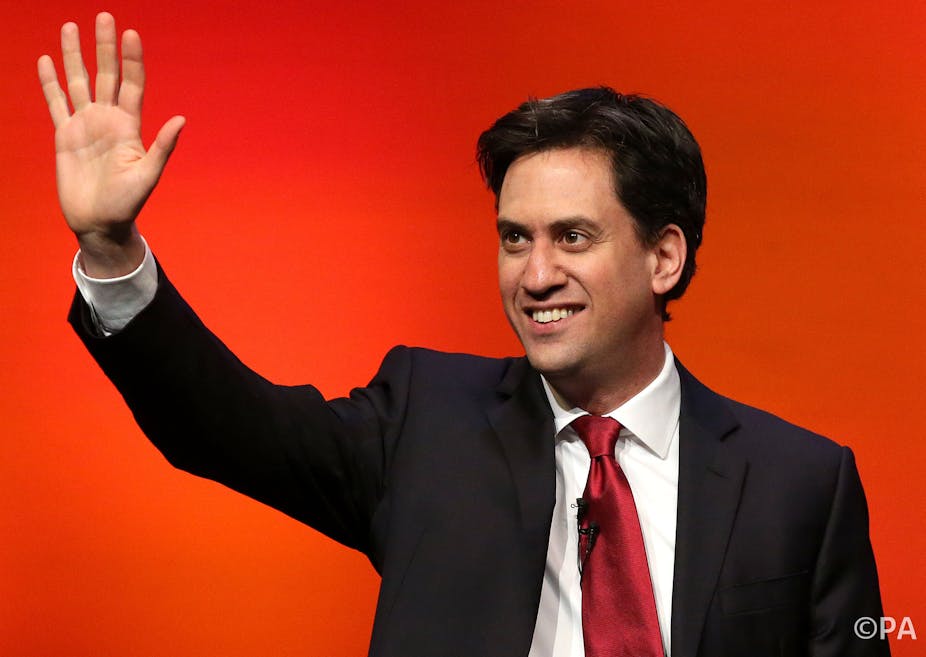Ed Miliband’s goal in addressing the Scottish Labour conference in Perth was straightforward: to promote the campaign for the No vote on the forthcoming referendum on Scottish independence.
There are all sorts of reasons why Labour is committed to an unwavering defence of the union but one stands out: minus Scotland it would be much tougher to win a Westminster election.
Consistently the polls have shown the Nos to be well ahead but recently there have been some jitters. Some polls have indicated a narrowing of the gap and a number of commentators have claimed that the pro-independence camp is acquiring the all-important momentum.
Surely, it might be objected, what matters above all is whether people believe Scotland will benefit economically from independence and here the nos are safely ahead.
The Better Together campaign led by Alasdair Darling has concentrated its fire on warning voters about the economic dangers of separation in terms of jobs, pensions and living standards.
The Yes campaign is calculating that two other questions may help decide the vote. What is the referendum vote all about? And who is the argument between?
The SNP argues that the referendum is really about the future of Scotland as a progressive, open-minded country committed to the values of fairness, equality and tolerance – views arguably not held to the same extent in England.
As for the second question, the Yes camp would dearly like Scots to see the argument as being between the SNP and the Tories. Ingrained into Scottish political culture is a deep-seated distaste and even fear of the Conservatives.
Ed’s different strategy
It is interesting that Miliband in his speech focused on these issues, saying little about the economic debate. Nor did he mention the Scottish Labour proposals published this week on what powers to devolve in the event of a No vote in September - it is hard to say whether this reflected a desire to leave it to Scottish politicians or a lack of conviction over the strategy.
Instead his response was threefold. First, social justice is no respecter of borders: the supposed contrast between a progressive Scotland and a Tory England is an SNP myth.
For those who truly uphold the principle of social justice, he argued, what matters is not where people live but what they need and how they can be helped.
The Labour leader repeatedly invoked the concept of mutual responsibility – we are, he insisted, better together. You can’t be both a narrow nationalist and a champion of social justice at the same time.
Second, much of Miliband’s speech was devoted to denouncing the Tory budget with a somewhat ritualistic condemnation of the party’s indifference and contempt for those less fortunate than themselves.
The purpose was to demonstrate that the real and enduring divide in politics was not between Scotland and the rest of the UK but between Labour and the Conservatives.
Finally, Miliband argued, the SNP’s prospectus as a party of the left was fake. Its claim to be a custodian of social democratic values is disingenuous, brazen and meretricious.
What the SNP was really promising, he contended, was tax cuts for businesses and the wealthy. Thus, Alex Salmond is calling for a cut in corporation tax and refusing to commit to restoring the 50p band introduced by Labour and abolished by the Tories on the grounds (in the First Minister’s words) that “we can’t expect to place Scotland at a tax disadvantage”.
Miliband said that this disclosed the SNP’s real economic strategy: to foster a race to the bottom where firms could skip the border seeking lower taxes and cheaper labour.
While it is notoriously difficult to say how these things will play out with the electorate, on balance the decision to focus beyond the usual economic fears felt like the right one.
It is anyone’s guess whose narrative the Scottish voters might accept. Three imponderables that are often overlooked are worth mentioning:
- The significant number of Labour voters inclined towards a No vote but not unequivocally so
- The many registered voters who normally do not participate in elections, especially Scottish ones
- The substantial numbers eligible to vote but not even on the electoral register
Together that’s more than half of all potential voters. Reports suggest that the Yes campaigners are making a major effort to mobilise the latter two groups.
They calculate that since they are mainly working class and young, they tend to be both anti-Tory and sceptical of the union.
A key test of Miliband’s message, and that of Scottish Labour as a whole, is whether it can reach these three groups.

